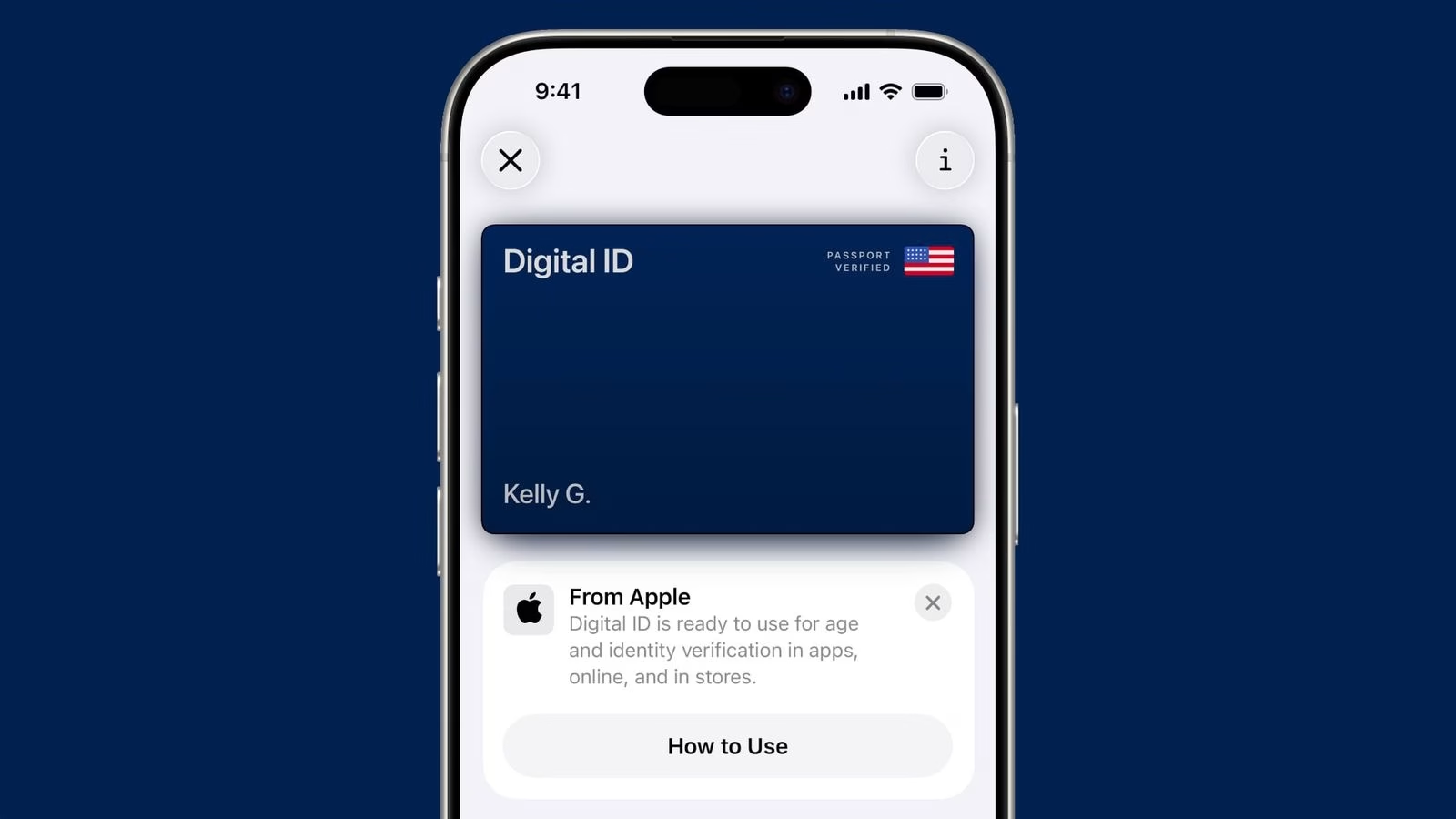Apple Wallet Digital ID Support Expands to North Dakota
The slow but steady pace of this rollout highlights Apple's commitment to modernizing how we manage our personal identification. Since the feature's initial launch in states like Arizona and Maryland back in 2021, the list of participating regions has gradually increased. With the latest updates to iOS and watchOS, North Dakota's inclusion brings the total number of supported U.S. states and territories to 11, plus Puerto Rico, marking a significant milestone in the adoption of digital IDs.
What Does This Mean for North Dakota Residents?
For those unfamiliar, the digital ID feature in Apple Wallet isn't just a digital copy of your physical card. It's a cryptographically secured credential that allows users to present verified information without revealing unnecessary personal details. Imagine needing to prove your age at a store or your identity at a TSA checkpoint. Instead of digging through your wallet, you'd simply hold your iPhone or Apple Watch near a compatible reader. The device then shares only the essential data required for the transaction, like your age or name, while keeping sensitive information like your address private.
This process is built on Apple's robust security framework:
- Biometric Security: Accessing your digital ID is protected by Face ID or Touch ID, ensuring only you can present it.
- Privacy-Focused Design: Your identity data is stored securely on your device and is end-to-end encrypted, meaning Apple doesn't have access to it.
- Offline Functionality: Crucially, the digital ID works even without an internet connection, a feature confirmed in Apple's updated support documentation.
Residents of North Dakota will be able to add their state-issued driver's license or ID by visiting the Wallet app on their compatible device, scanning their physical card, and following the verification steps guided by the North Dakota Department of Transportation (NDDOT).
The Rollout and Specifics for North Dakota
Apple's official support pages have already been updated to reflect North Dakota's inclusion, signaling an imminent rollout, with expectations pointing towards early October 2025. This integration represents a significant upgrade for North Dakota, which has already been exploring mobile driver's licenses since 2023. The NDDOT has emphasized that this partnership with Apple aligns with their commitment to innovation and will provide residents with a modern, secure, and convenient way to manage their identification.
Key details for North Dakotans looking to adopt this technology include:
- Device Requirements: An iPhone XS or later running iOS 15 or higher, or an Apple Watch Series 4 or later with watchOS 8 or higher.
- Cost: While adding the digital ID to your Wallet is free, there might be a small annual fee associated with the underlying mobile ID issuance from the state itself, typically in the range of $10-$30, according to NDDOT guidelines.
- Initial Use Cases: The digital ID will initially be usable for in-state verifications, such as during traffic stops, for age-restricted purchases, and at certain airport security checkpoints. Federal acceptance, particularly for programs like TSA PreCheck, is still expanding.
- Rural Impact: For a state like North Dakota, with a significant portion of its population in rural areas, this digital convenience could be particularly impactful, reducing the need to carry physical cards for everyday tasks.
A Growing Ecosystem of Digital IDs
North Dakota's addition is part of a larger trend. The expansion of Apple Wallet's digital ID feature has been consistent, with states like Montana joining just last month. This growing network now includes:
- Arizona (2021)
- Maryland (2022)
- Colorado (2023)
- California (pilot, full in 2024)
- Georgia (2024)
- Hawaii (2024)
- Florida (2024)
- Oklahoma (2024)
- Utah (2024)
- Puerto Rico (2024)
- Montana (August 2025)
- North Dakota (October 2025)
This growing list represents a substantial portion of the U.S. population, and the momentum seems to be accelerating. Apple has also hinted at future enhancements, including potential support for U.S. passports for domestic travel, which could further streamline airport experiences. The push for digital IDs is driven by factors like federal REAL ID compliance deadlines and a general consumer demand for more convenient, contactless solutions in the post-pandemic era.
Security, Privacy, and Future Implications
The benefits of carrying your ID in Apple Wallet are multifaceted. Beyond the sheer convenience of not needing a physical wallet, the security and privacy aspects are significant. Digital IDs are inherently more resistant to fraud than their physical counterparts, as they can't be easily photocopied or counterfeited. Cybersecurity experts often highlight how this system limits data exposure during verification processes, a crucial factor in today's digital landscape.
While the adoption is exciting, there are still considerations. Not everyone owns a compatible device, and ensuring widespread acceptance at all necessary checkpoints will take time. Furthermore, reliance on device battery life is a practical concern. Nevertheless, the potential impact is profound, offering a path to reduce identity theft and simplify countless daily interactions for millions of Americans.
Looking ahead, it's anticipated that more states will join the Apple Wallet digital ID program in the coming years. Discussions also hint at potential international expansions and deeper integration with other services, like banking or healthcare. For now, North Dakota's embrace of this technology is a clear indicator of the evolving digital identity landscape, making it easier and more secure for residents to prove who they are, one digital ID at a time.
